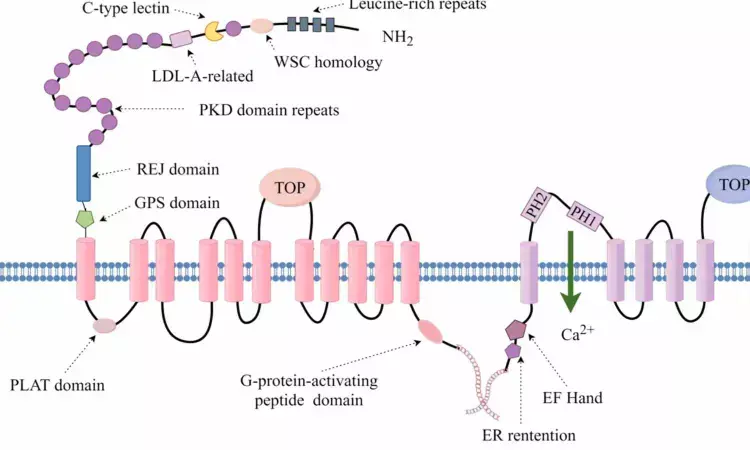- Home
- Medical news & Guidelines
- Anesthesiology
- Cardiology and CTVS
- Critical Care
- Dentistry
- Dermatology
- Diabetes and Endocrinology
- ENT
- Gastroenterology
- Medicine
- Nephrology
- Neurology
- Obstretics-Gynaecology
- Oncology
- Ophthalmology
- Orthopaedics
- Pediatrics-Neonatology
- Psychiatry
- Pulmonology
- Radiology
- Surgery
- Urology
- Laboratory Medicine
- Diet
- Nursing
- Paramedical
- Physiotherapy
- Health news
- Fact Check
- Bone Health Fact Check
- Brain Health Fact Check
- Cancer Related Fact Check
- Child Care Fact Check
- Dental and oral health fact check
- Diabetes and metabolic health fact check
- Diet and Nutrition Fact Check
- Eye and ENT Care Fact Check
- Fitness fact check
- Gut health fact check
- Heart health fact check
- Kidney health fact check
- Medical education fact check
- Men's health fact check
- Respiratory fact check
- Skin and hair care fact check
- Vaccine and Immunization fact check
- Women's health fact check
- AYUSH
- State News
- Andaman and Nicobar Islands
- Andhra Pradesh
- Arunachal Pradesh
- Assam
- Bihar
- Chandigarh
- Chattisgarh
- Dadra and Nagar Haveli
- Daman and Diu
- Delhi
- Goa
- Gujarat
- Haryana
- Himachal Pradesh
- Jammu & Kashmir
- Jharkhand
- Karnataka
- Kerala
- Ladakh
- Lakshadweep
- Madhya Pradesh
- Maharashtra
- Manipur
- Meghalaya
- Mizoram
- Nagaland
- Odisha
- Puducherry
- Punjab
- Rajasthan
- Sikkim
- Tamil Nadu
- Telangana
- Tripura
- Uttar Pradesh
- Uttrakhand
- West Bengal
- Medical Education
- Industry
Asymptomatic Nephrolithiasis tied to faster Kidney Function Decline in polycystic kidney disease: Study

Researchers have found in a new study that asymptomatic kidney stones are linked to a faster decline in kidney function in patients with autosomal dominant polycystic kidney disease (ADPKD). This emphasizes the need for regular monitoring and management of kidney stones, even when no symptoms are present, to help reduce their impact on renal health.
Autosomal Dominant Polycystic Kidney Disease (ADPKD) is a common hereditary disorder leading to end-stage kidney disease due to the progressive formation of renal cysts. Nephrolithiasis is a frequent complication of ADPKD, with a prevalence significantly higher than in the general population.
However, its role in disease progression remains underexplored. This study investigates the impact of asymptomatic nephrolithiasis on kidney function decline in ADPKD patients.
A retrospective cohort of 195 ADPKD patients was followed at our nephrology clinic. Of these, 85 patients had nephrolithiasis (N+), and 110 did not (N-). Data on demographic characteristics, biochemical parameters, and kidney function were collected. ΔeGFR (change in eGFR over time) served as the primary outcome. Statistical analyses, including correlation and multiple linear regression, were performed to assess the predictors of ΔeGFR.
Results: The N + group exhibited a significantly greater decline in kidney function compared to the N- group (ΔeGFR: 16.53 vs. 12.82 mL/min/1.73 m², p = 0.008). Lower calcium levels were observed in the N + group (p = 0.007), potentially reflecting metabolic abnormalities linked to nephrolithiasis. Nephrolithiasis was independently associated with kidney function decline (B = 3.159, p = 0.038). Follow-up duration was strongly associated with ΔeGFR (p < 0.001). Age showed a trend toward significance but did not reach statistical significance.
Asymptomatic nephrolithiasis is associated with accelerated kidney function decline in ADPKD patients. These findings highlight the importance of monitoring kidney stones, even in the absence of symptoms, to mitigate their impact on renal dysfunction.
Reference:
Elcioglu, O.C., Yatci, B., Ozturk, B.B. et al. The impact of asymptomatic kidney stones on disease progression in autosomal dominant polycystic kidney disease. BMC Nephrol 26, 94 (2025). https://doi.org/10.1186/s12882-025-03979-7
Dr. Shravani Dali has completed her BDS from Pravara institute of medical sciences, loni. Following which she extensively worked in the healthcare sector for 2+ years. She has been actively involved in writing blogs in field of health and wellness. Currently she is pursuing her Masters of public health-health administration from Tata institute of social sciences. She can be contacted at editorial@medicaldialogues.in.
Dr Kamal Kant Kohli-MBBS, DTCD- a chest specialist with more than 30 years of practice and a flair for writing clinical articles, Dr Kamal Kant Kohli joined Medical Dialogues as a Chief Editor of Medical News. Besides writing articles, as an editor, he proofreads and verifies all the medical content published on Medical Dialogues including those coming from journals, studies,medical conferences,guidelines etc. Email: drkohli@medicaldialogues.in. Contact no. 011-43720751


